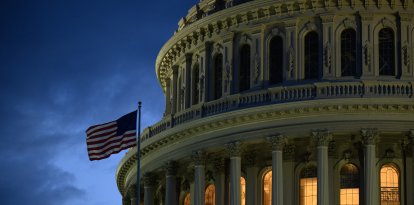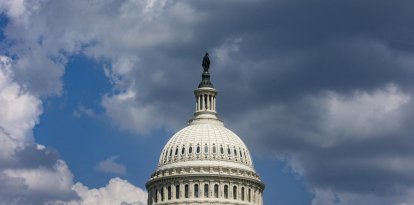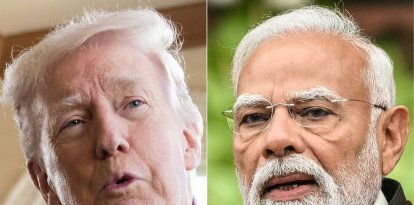Why has vote counting in Arizona been so slow?
Democrats conduct 'vote harvesting,' which increases the number of ballots cast by mail. These votes do not begin to be counted until the close of voting.

Kari Lake muestra multitud de noticias que recogen a los líderes demócratas que no reconocen el resultado electoral.
In the 2000 presidential election, all eyes were on the recount in Florida. The slow counting process caught the attention of the country. It has been refined, and in the recent midterm elections, all 7.77 million votes in Florida were counted by election night.
The same was not true in Arizona. There were 2.4 million total votes recorded, but as of the date of this article's publication, 2% of the votes cast have yet to be counted. As of Monday night, with 98% of the votes counted, Democrat Katie Hobbs was officially projected as the winner of the state's gubernatorial election, with 50.39% of the vote to Republican rival Kari Lake's 49.61%.
Why is the count so slow?
How is it possible that Arizona has been counting for a week, while Florida, with more than twice as many votes, was able to count in just a few hours?
One of the reasons given is the voting malfunctions in Arizona's Maricopa County, one of the largest counties in the United States with population of 1.3 million. The reason, however, seems insufficient, as the solution is simply matter of providing the necessary resources to accomodate the corresponding volume of votes.
Absentee ballots
Perhaps more relevant to Arizona's slow counting is the vote verification process. According to Helen Purcell, speaking to Fox 10 Arizona,
In other words, the ballots that remain to be counted are those submitted via mail in the days leading up to the election. In addition, according to Stephen Richer, 100,000 more mail-in ballots were submitted on actual Election Day than in 2020.
Stephen Richer is the Maricopa County Recorder and is involved in managing the election process.
Vote harvesting
One of the reasons that the count is taking so long this year is the large increase in mail-in ballots. This has to do with what is known as "vote harvesting," the process of collecting and sending ballots by mail by third parties. That is to say, instead of the voters physically going to the polling stations, third parties act as intermediaries; they "harvest" the vote and deliver it to be counted.
Supporters of this system claim that it facilitates the electoral participation of minorities. Critics point out that it is a potential gateway to voter fraud. Through vote harvesting, is not as easy to verify if the vote is cast by someone without the right to vote, typically an immigrant, or whether it comes from a U.S. citizen.
The issue has become increasingly political. Minorities and immigrants tend to vote more for Democratic candidates. Imposing stricter control over voter verification makes the electoral system more transparent. However, ensuring that only U.S. citizens vote also clearly favors the Republican Party.
Improving the system is a partisan issue
This explains why Republican leaders talk so often about the need for greater control over the electoral process. One of those leaders is the Republican candidate for governor of Arizona, Kari Lake. Lake told Fox News:
In response to these words, the chairman in charge of the vote count in Maricopa County, Bill Gates, told CNN:
There are three people responsible for the vote count. Two are the aforementioned Maricopa County Board of Supervisors Chairman Bill Gates and County Recorder Stephen Richer. However, the primary responsibility falls on the shoulders of Arizona's Secretary of State.
Conflict of interest
It just so happens that Arizona's Secretary of State is none other than the Democratic gubernatorial candidate, Katie Hobbs. In other words, amidst suspicion of mismanagement of the voting process, the main person responsible is one of the candidates running.
Todd Carney, in an article published in Real Clear Politics, reminds readers:
Barriers to voting in Republican areas
The counting process is not the only problem with the Arizona election. On Election Day, 60 of the 223 polling stations experienced problems with the voting machines accepting ballots.
Republican candidate Kari Lake complained that the malfunctioning machines were all located in areas with a majority of Republican voters. Meanwhile, in Phoenix, where Democrats are in the majority, there were no problems. None of the 60 polling places which experienced issues were in Democratic areas. Lake expressed fear that many voters would get tired of waiting and decide not to cast a ballot. Donald Trump made a video in which he called on voters to persevere so that their vote would not be lost.
Apart from the machine malfunctions that occurred in Republican areas, data shows that Republican voters vote much less frequently by mail, in part due to lack of trust of the mail-in system compared to in-person voting.
Rep. Marjorie Taylor Greene wonders if we are witnessing election theft in slow motion.
Here is the link to check ballot status in Maricopa County.

























